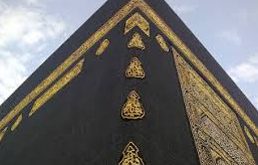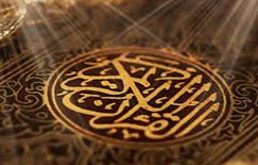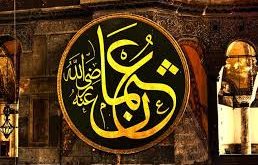From the beginning of the world until this present era, the Ka‘bah was reconstructed five times. Initially, it was constructed by Hazrat Aadam (‘alaihis salaam). Hazrat ‘Abdullah bin ‘Amr bin ‘Aas (radhiyallahu ‘anhuma) reports that Rasulullah (sallallahu ‘alaihi wasallam) said, “Allah Ta‘ala sent Hazrat Jibraa’eel (‘alaihis salaam) to command Hazrat …
user
July, 2018
-
25 July
Marriage to Hazrat Khadijah (radhiyallahu ‘anha) – Part Three
At the time of his blessed nikaah to Hazrat Khadijah (radhiyallahu ‘anha), Rasulullah (sallallahu ‘alaihi wasallam) was twenty-five years old whilst Hazrat Khadijah (radhiyallahu ‘anhu) was forty. The mahr (dowry) was fixed at twenty camels. However, according to Seerat Ibn Hishaam and Hafiz Abu Bishr Dawlaami (rahimahullah), the stipulated mahr …
-
25 July
Worrying of our Own Selves
Hazrat Mufti Ebrahim Salejee (Daamat Barakaatuhu) mentioned: The hadeeth teaches us to focus on our own wrongs and not to blame others. On the contrary, the Western attitude trains us to throw the blame onto others and always find an escape route for ourselves. Sometimes we are made to suffer …
-
23 July
The Difference between the Ahl-us-Sunnah wal-Jamaa‘ah and the Shias Regarding the Qur’aan
The distinguishing characteristic of Islam, compared to all other religions of the past, is the aspect of authenticity and reliability. Every detail of Islam has been accurately and precisely preserved from the very inception of wahi (revelation) up to this day. Fourteen centuries have passed, yet the Holy Qur’aan has …
-
21 July
Hazrat ‘Uthmaan (radhiyallahu ‘anhu) – Part Seventeen
Glad Tidings of Jannah Hazrat Abu Moosa (radhiyallahu ‘anhu) narrates the following: I was once in the blessed company of Rasulullah (sallallahu ‘alaihi wasallam) in one of the orchards of Madinah Munawwarah when a person came and sought permission to enter the orchard. Hearing the person’s request, Rasulullah (sallallahu ‘alaihi …
-
19 July
Marriage to Hazrat Khadijah (radhiyallahu ‘anha) – Part Two
On the decided date of the nikaah, Rasulullah (sallallahu ‘alaihi wasallam) proceeded to the home of Hazrat Khadijah (radhiyallahu ‘anha) with his uncles, Abu Taalib and Hazrat Hamzah (radhiyallahu ‘anhu), and a few other seniors of the family. The father of Hazrat Khadijah (radhiyallahu ‘anha) had passed away before the …
-
19 July
Marriage to Hazrat Khadijah (radhiyallahu ‘anha) – Part One
Hazrat Khadijah (radhiyallahu ‘anha) went to Waraqah bin Nawfal and explained to him the incidents that transpired during the journey of Rasulullah (sallallahu ‘alaihi wasallam), the statement of the monk and the manner in which the angels were shading him. Waraqah remarked, “O Khadijah! If these incidents are true, then …
-
19 July
Second Journey to Syria and the Encounter with Nastoora, the Monk – Part Three
When Rasulullah (sallallahu ‘alaihi wasallam) returned from Syria, it was afternoon and two angels were shading him. When Hazrat Khadijah (radhiyallahu ‘anha), who was on the upper floor, saw Rasulullah (sallallahu ‘alaihi wasallam) coming in this extraordinary state, she showed the women who were present the very same sight at …
-
19 July
Second Journey to Syria and the Encounter with Nastoora, the Monk – Part Two
When Rasulullah (sallallahu ‘alaihi wasallam) reached Busraa, he sat in the shade of a tree. A monk by the name of Nastoora lived in that area. On seeing Rasulullah (sallallahu ‘alaihi wasallam) beneath this tree, he approached him and said, “From Hazrat ‘Isa bin Maryam (‘alaihis salaam) until this moment, …
-
19 July
Second Journey to Syria and the Encounter with Nastoora, the Monk – Part One
Hazrat Khadijah (radhiyallahu ‘anha) was a wealthy woman from one of the noble clans of the Arabs. Due to her noble lineage, purity and chastity, the people would call her by the title ‘Taahirah’ (the pure one) during the times of ignorance as well as the era of Islam. When …
 Ihyaaud Deen An Effort to Revive Deen in Totality
Ihyaaud Deen An Effort to Revive Deen in Totality








